Hawke's Bay earthquake 1931
Where can I find information about the Hawke's Bay earthquake in 1931?
(Years 7-10)
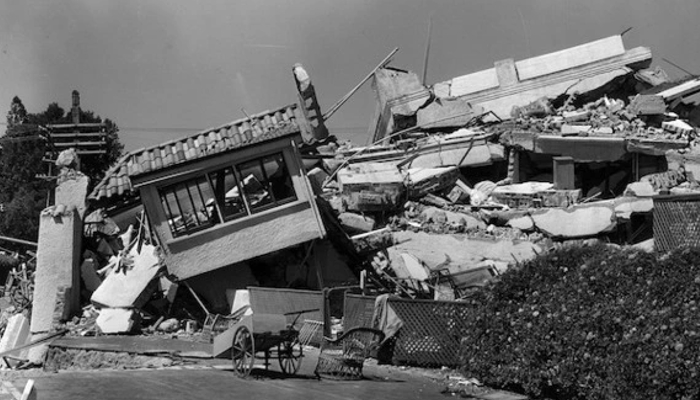
Image: Ruins of the Napier Nurses Home after the 1931 Hawke's Bay earthquake by [unknown]. Collection: Alexander Turnbull Collection.
Entry last updated: 10/07/25
Introduction
The Hawke's Bay Earthquake (also known as the Napier Earthquake) occurred on the morning of Tuesday 3 February 1931. The quake devastated the region, injured thousands and killed at least 256 people, making it one of New Zealand's deadliest quakes. The Art Deco rebuild has led to Napier and Hastings being iconic for this architectural style.
General Websites
The following entries provide facts, personal memories and photos of the earthquake, the fires which came shortly afterwards, the aftershocks, the buildings destroyed, the lives lost, the rescue work and the rebuilding effort involved. These sites show how the landscape of the region has been changed forever.
Te Ara: The Encyclopedia of New Zealand
This is an excellent starting point for all questions about Aotearoa New Zealand. If we go all the way down the page we can see that the website belongs to the Ministry for Culture & Heritage.
Go to Topics and choose Disasters and hazards.
From the list select Historic earthquakes.
Select The 1931 Hawke's Bay earthquake from the contents.
This is another website from the Ministry for Culture & Heritage for information about the history of Aotearoa New Zealand.
Enter 'Hawke's Bay earthquake' into the search box at the top of the page.
Look down the page to find the article 1931 Deadly Hawke's Bay earthquake.
Tips: We like sites like this because they’re reliable. You can tell because of their web address – they have either .govt or .ac, meaning they are from government or educational organisations. They’re also New Zealand sites, so relevant for us.
Hastings Library like most public libraries has dedicated some of its website to areas of local history which include the 1931 earthquake.
Go to the Open menu icon at the top right of the page and select Find Information.
In the drop-down menu select Hawke's Bay Earthquake 1931.
The library website has a list that covers all significant New Zealand earthquakes, including the Hawke's Bay earthquake.
Select the Learning tab at the top of the homepage.
Choose Homework resources for kids from the drop-down menu.
Look down the page for New Zealand Disasters.
Hawke's Bay earthquake is found under Earthquakes, Landslides & Volcanoes.
Tips: We like sites that are from government or other reputable organisations, because we can trust the information. You can sometimes tell these sites by their web address – they might have .govt or .edu in their address – or by looking at their About us page.
Articles and Videos
Here are our favourite sites which provide articles, videos and other digitised content on the earthquake.
DigitalNZ is a search site that focuses on New Zealand history and brings together results from lots of different websites such as New Zealand libraries, museums, universities and government sites all at once.
Enter the keywords 'Hawke's Bay earthquake' or 'Napier earthquake'.
Choose from the range of images, audio, videos, research papers, articles, data and more.
Watch Earthquake from NZ On Screen.
Or read the article Hawke's Bay shell carbon dating hoped to reveal earthquake timelines.
Tips: Websites that have .org or .net in the address can have good information, but you need to assess how reliable it is. Check the About us link on the website, if you can find one. That can tell you what the organisation’s mission and values are.
This website is great for historic newspaper articles published in New Zealand about the Hawke's Bay earthquake.
Go to Newspapers to find articles about the earthquake.
You can choose to search by title, region or date, or by using your keywords.
Narrow your results by date or type of content to find the most relevant articles.
Tips: We like Papers Past because it is from a government organisation (the National Library of New Zealand). You can tell this by their web address, which includes .govt. It is also a New Zealand site, so it's relevant for us.
This is a good website to look for news stories about New Zealand topics in more recent times. There are press releases, articles, speeches and more from government departments and other organisations.
In the search bar enter 'Hawke's Bay earthquake' or 'Napier earthquake'.
At the top of the page choose between sorting by date or relevance.
Tips: Websites that have .com or .co in the address can have good information, but you need to assess how reliable it is. Check the About us link on the website, if you can find one. That can tell you what the company’s mission and values are.
EPIC resources
EPIC is a collection of reliable databases covering lots of different topics. It is put together especially for New Zealand school students and helps to answer questions like this. You may need a password from your school or local library to access it.
Australia New Zealand Reference Centre Plus
Look here for newspaper and magazine articles from New Zealand and Australian newspapers and magazines.
Enter 'Hawke's Bay earthquake' or 'Napier earthquake' into the search bar.
Select the Full text box to see the articles you can read online.
Tips: Search words, or keywords, are the most important words in our question. Usually it’s better to leave out small words like ‘the’, ‘a’ and ‘of’ and just choose the main ones, eg Napier earthquake. We can always change our keywords or add more if we need to.
New Zealand Geographic is a magazine published bimonthly with a focus on New Zealand's biodiversity, geography and culture. This online resource allows access to the entire archive of the magazine.
Enter 'Hawke's Bay earthquake' in the search bar.
Select the article called The architecture of tragedy about the earthquake and how Art Deco architecture shaped the rebuilding of Napier.
Or select 90 years since the Napier earthquake to listen to what survivors had to share about the day the quake struck.
Tips: To use the EPIC resources, you need a password from your school librarian. Or chat with one of our AnyQuestions librarians to help you online. Some EPIC databases may also be available through your public library.
Books
Your local or school library may have some books about the Hawke's Bay earthquake. We have listed a few titles to help you with your search.
The Napier earthquake by Kevin Boon.
Quake: The Hawke's Bay earthquake by Matthew Wright.
The Hawke's Bay earthquake: New Zealand's greatest natural disaster by Robert McGregor, Napier Art Deco Trust.
AfterWords: interviews and letters from survivors of the 1931 Hawke's Bay earthquake by Helen McConnochie.
Earthquakes! shaking New Zealand by Maria Gill.
Hastings, Havelock North and Napier: a collage of history by Michael Fowler.
Living on shaky ground: the science and story behind New Zealand's earthquakes by Matthew Wright.
Tips: When searching on a library catalogue, books which are best for research are called 'non-fiction.' These are fact or information books rather than stories.
SCIS no: 1836098
Topics covered
Related content
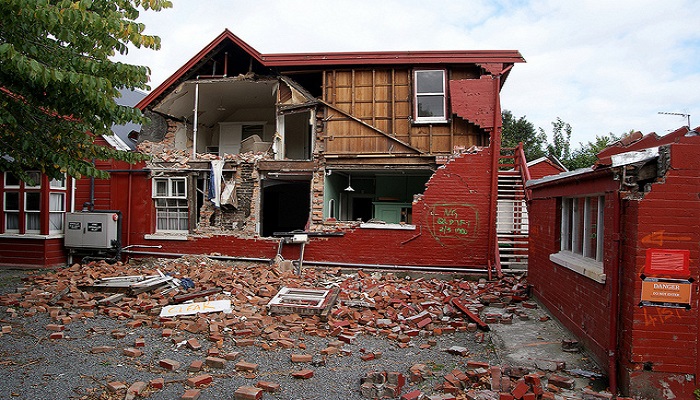
Natural disasters (NZ)
Where can I find information about natural disasters in New Zealand?
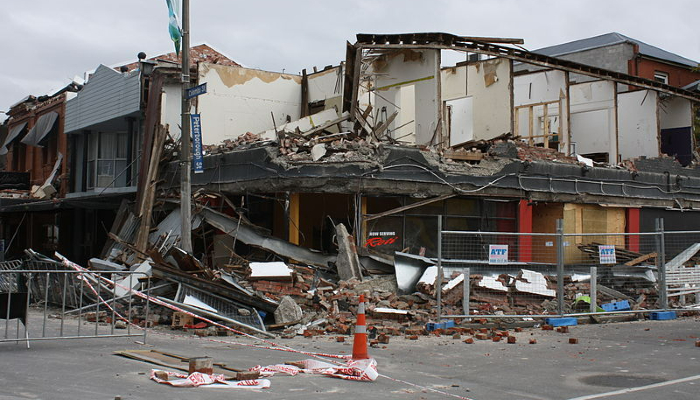
Canterbury earthquakes 2010–2011
Where can I find information about the Canterbury earthquakes of 2010 and 2011?
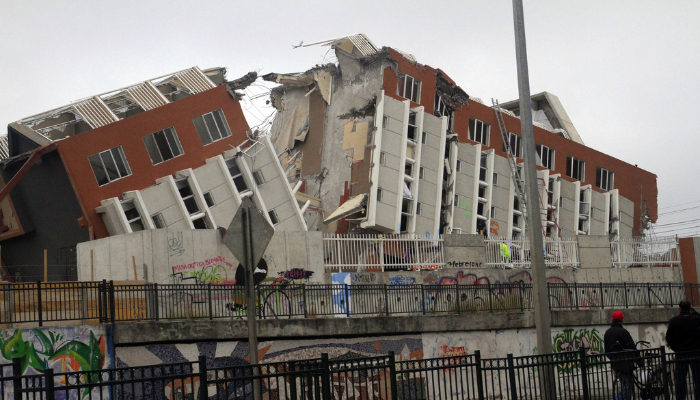
Earthquakes
Where can I find information about earthquakes?
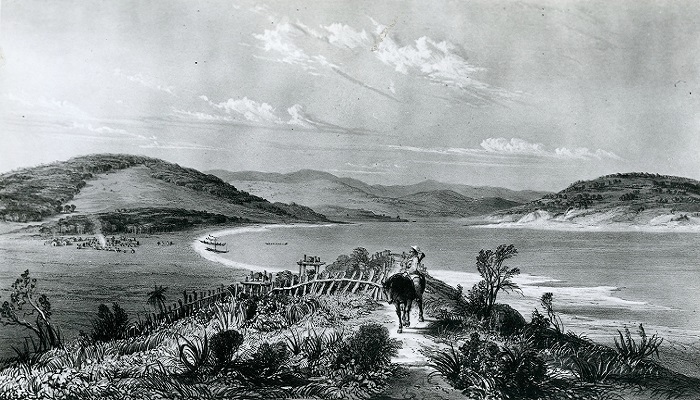
History (New Zealand)
Where can I find information about New Zealand history?
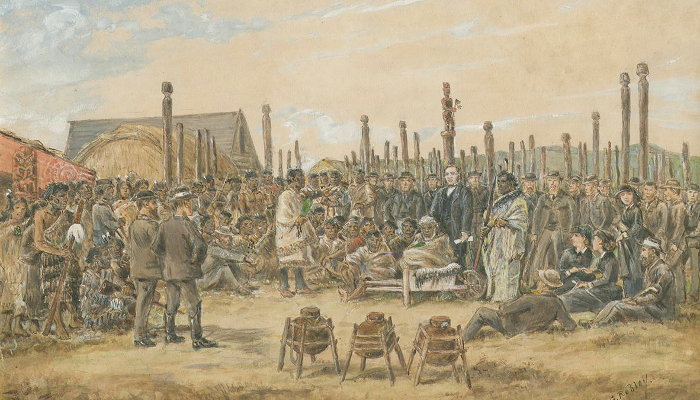
Events of Hawke's Bay
Where can I find information about the local histories of Hawke's Bay | Te Matau-a-Māui?
